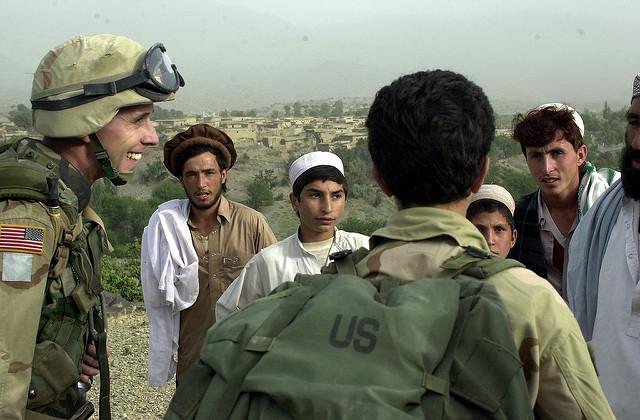
Donald Trump’s foreign policy focus on ISIS was one of his recipes for winning the US presidential election. Even political affairs pundits whose expertise doesn’t extend to counterterrorism found a soft spot for his tough stance, understandably appalled by the surge in ISIS-directed attacks in the West. However, for those who had their hopes up for a winning ISIS strategy, President Trump could prove a disaster for Washington’s CT policy.
Terrorism and counterterrorism policy have become key political drivers in the US but the discourse now is out of touch with empirical research. US policy-makers are now arguing that the bipartisan focus on CT during the Obama era is one of the reasons that Trump could essentially surf the wave of the globally-magnified discourse on terrorism.
Trump’s success was based on his appeal to the economically disadvantaged and his ability to connect with Middle America. However, two former senior Obama administration officials, Jon Finer and Robert Malley, self-critically underscore that another contributing factor for his success was ‘a bipartisan approach to national security focused on terrorism that has distorted America’s understanding of its interests’:
‘We saw firsthand how parallel policy-making processes, one for counterterrorism and another for everything else, often made conflicting recommendations for example, over whether to strike terrorist targets in a given country or forego military action that could undermine the host government. We saw the degree to which policy arguments couched in the language of counterterrorism carried inordinate weight. As a consequence, advocates in our internal conversations cast their arguments in counterterrorism terms.’
That, coming from Obama’s own policy-makers, highlights the dangers of the “politics of fear”. The CT lens has come to overshadow most national security and foreign policy decisions, acting as a useful reminder for other countries, including Australia.
Despite the Trump presidential campaign revolving around the issue of terrorism, experts have cautiously anticipated what real policies he could implement given his unpredictability. However, since Trump’s inauguration, it’s become clear that CT is one of the key areas where he intends to walk the talk. His resolute insistence on the travel bans for several Muslim-majority countries under the aegis of national security provides clear evidence. Further corroboration is his appointment of Sebastian Gorka, a former Breitbart chairman and editor, as his national security advisor on terrorism matters.
The overall discourse on global CT policy has taken a 360-degree turn since 9/11. From Bush’s divisive ‘Global War on Terror’ language to Obama’s more measured semantics of a ‘War on al-Qaeda’ and focus on Countering Violent Extremism (CVE), to now a full-on anti-Islamic discourse with Trump. His contributions have dramatically changed the global CT policy landscape.
Last year there was a sense of actual progress in the fight against ISIS given the recent territorial gains by Iraqi coalition forces together with various CVE projects for counter-messaging ISIS’s propaganda. Now CT scholars find themselves battling two discursive fronts: the meta-narrative of groups such as ISIS, and the now burgeoning white supremacist discourse of the alt-right movements. The former is now being fuelled by the latter, and the process is becoming an evil cycle. It’s not a coincidence that the next major CT conference in New York is about ‘emerging threats’.
The threat of right-wing extremism has long been present. What’s new is its normalisation and how it’s becoming “mainstream” discourse, given additional impetus by the White House. The difference lies in the fact that facts and empirical research no longer set policy agendas in the post-truth era. Notwithstanding the debate over Obama’s foreign policy credentials, his CT policy agenda was in line with the views of the leading experts in the field. Despite the unfortunately overblown bipartisan focus on CT blurring US global interests, Obama steered the much-needed global focus on the holistic approach of CVE. Even the Bush administration in late 2005 ultimately realised the Global War on Terror strategy wasn’t working, and that a root-cause-oriented approach was needed.
So what can CT-policy decision-makers and scholars do to affect the global discourse given the apparent agenda now being set by the Trump White House? They shouldn’t let CT take precedence over policy-making in other national security and foreign policy fields. We’re already witnessing this around the world as migration is conflated with terrorism. Alex P. Schmid, a leading terrorism scholar, last year published an insightful report on the issue.
Terror attacks and the fear of them can generate a lot of questions and there’s a fine balance in dealing with the political momentum in the aftermath of such an attack. With Trump the question becomes how much damage will be done by reversing what’s been achieved to date through the globally-led agenda. If the reaction to the Bush-era policies is anything to go by, we should also expect to see a backlash against Trump’s CT efforts.